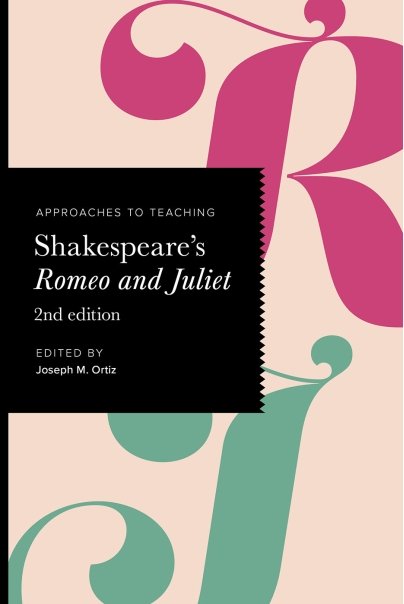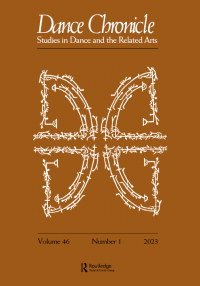Publications
Jehbreal has published chapters and articles that combine the study of ballet, Shakespeare, music, Afro-diasporic cosmologies and race to analyze their compositional and cosmological connection to past and present day art making. She uses her findings as source material for her own artistic creations.
Her forthcoming dissertation research analyzes George Balanchine’s Agon in relation to the Rada, Gede, and Petwo Rites of Haitian Vodou. She uses Agon’s evocation of the early modern French court, and blend of Afro -diasporic dances with ballet and court dances to argue for similar moments of cultural transmission at ballet’s origins. Jehbreal argues that Balanchine uses Hatian ritual dances to evoke the early modern French court and that the geometric dances of the court and classical ballet technique itself, are not just a product of the early modern European court, but rather of several cultural influences, including those from the African continent.
Written Publications
Ballet as Artistic, Scientific, and Existential Inquiry: Incorporating Ballet’s Broader History in a Syllabus and in the Studio
This chapter traces the roots of ballet to the Moorish and Islamic cultures that dominated what is now southern Spain from 711 CE to 1492 CE, as well as to Bukôngo craft and compositional systems. In the seventeenth century, when the courts of Louis XIII and XIV absorbed and depicted Spanish art and culture, they appropriated the Sarabande, taken from the Spanish theater’s Zarabanda. As a result, historians and teachers of ballet must consider a wider frame when discussing the origins of this art form. With this reframing of ballet history, Jehbreal Muhammad Jackson offers teachers of both lecture and studio classes a more sophisticated and nuanced understanding of ballet’s embodied geometries. As Jackson describes, the repetition and discipline that is required to enact these geometries point to Andalusi and Bukôngo cultures where art, science, religion, and philosophy all worked in tandem toward understanding the human relationship to the cosmos.
Dancing with the Queen of Sheba: Romeo and Juliet, Ballet, and Race Studies- In collaboration with Julia Reinhard Lupton
"Jehbreal Muhammad Jackson and Julia Reinhard Lupton come at the play from a wonderfully interdisciplinary angle, incorporating into their teaching a rigorously historicist understanding of the racial underpinnings of dance conventions. Their fascinating exposition of the racial texture of dance shows how the study of Shakespeare in the arts can be used to engage with issues of race and history. While the essays in this collection do not discuss the many operatic adaptations of Romeo and Juliet, Jackson and Lupton’s essay demonstrates how a careful triangulation of Shakespearean text, art history, and visual adaptation can help foster culturally aware performances.” -Joseph M. Ortiz, Editor
Ballet Pedagogy and a “Hard Re-Set”: Perspectives on Equitable and Inclusive Teaching Practices - In collaboration with Kate Mattingly, Keesha Beckford, Zena Bibler, Paige Cunningham, and Iyun Ashani Harrison
"In her scholarship on pedagogy, Gloria Ladson-Billings describes COVID-19 as a call to re-set education using a more culturally relevant pedagogy. As ballet teachers and researchers working in higher education and pre-professional settings, we teach a form of dance often associated with the characteristics of white supremacy. Through this collaborative institutional ethnography, we generated methods for posing questions, critiquing choices, and imagining alternatives to create more equitable educational settings. We connect the
process of addressing and challenging systemic exclusions in ballet with tangible steps toward creating more inclusive classes and performances that value the joy and pleasure in moving."
Holy Palmer’s Kiss: Love, Trust, and Wisdom in John Neumeier’s Romeo & Juliet Ballet- In collaboration with Julia Reinhard Lupton
In “Holy Palmer’s Kiss: Love, Trust, and Wisdom in John Neumeier’s Romeo & Juliet Ballet” Jehbreal and his mentor Julia Reinhard Lupton look at the work of choreographer, John Neumeier. They compare his adaptation with the play and with other productions of the famed story of the star crossed lovers in a collection titled “Romeo and Juliet, Adaptation, and the Arts: ‘Cut Him Out in Little Stars.’ ”
CANON The Cinematic Story Ballet (Cineballet) & How I Learned to Create Cognitive Characters from William Shakespeare
Jehbreal’s early research is documented in his MFA thesis CANON The Cinematic Story Ballet (Cineballet): & How I Learned to Create Cognitive Characters from William Shakespeare. Along with his research of Shakespeare and cognition, Jehbreal talks about how he made CANON as a result of his findings.
Shakespeare and Black Life: Actor Jeremie Harris in Conversation with Jehbreal Muhammad Jackson
Recorded April 22, 2021
In this public conversation, Jeremie Harris discusses his role as Claudio in New York Public Theatre’s 2019 production of Much Ado About Nothing, which featured an all-Black cast and was set in Atlanta during Stacy Abrams’ campaign for governor of Georgia.




